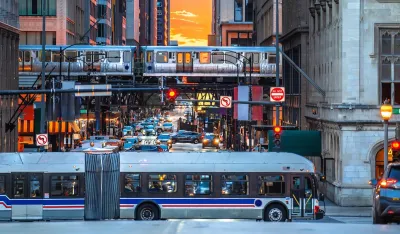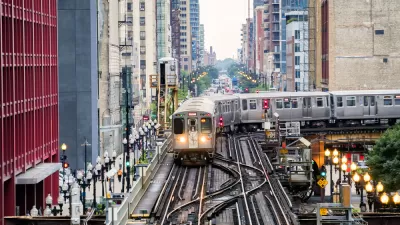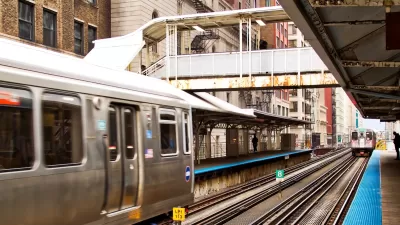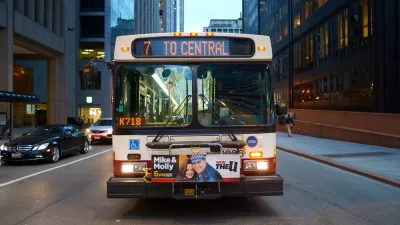Without additional funding, regional transit agencies will be forced to cut services by 40 percent.

The Regional Transportation Authority (RTA) of Northern Illinois, which serves the Chicago metro area, faces a devastating $770 million budget shortfall without additional funding from the state, officials warn.
“According to the agency, the lack of funding would end all weekend bus service for Pace and eliminate early morning and late evening service for Metra, wiping out nearly 3,000 transit jobs and delivering a devastating blow to the regional economy,” states an article in Mass Transit. The agency estimates the region would lose $2.6 billion in annual GDP due to the cuts.
Regional transit agencies including the Chicago Transit Authority, Metra, and Pace could see service cuts of up to 40 percent. “According to RTA, planning for cuts would begin immediately following the end of session if sustainable funding is not secured, with community meetings and public hearings held in the fall before initial cuts are included in the agencies’ 2026 budgets.”
RTA Executive Director Leanne Redden called the crisis “a regional emergency,” noting that “If the general assembly does not act this spring, hundreds of thousands of Illinoisans will wake up in 2026 without a way to get to work, school or medical appointments with continued uncertainty in future years about their transit services.”
CTA officials say the funding gap would cause it to reduce or eliminate service on half of its rail lines, impacting service at over 50 stations, and eliminate as many as 74 of its 127 bus lines. “CTA would go from one of the largest transit systems in the country to having fewer bus routes than Madison, Wis., and Kansas City, Mo.” Similar cuts would happen at Metra, which would likely eliminate early morning and late evening trains and reduce weekday service to once per hour. Pace riders in transit-dependent suburbs could see all weekend bus service eliminated in addition to reduced nighttime service and longer headways.
FULL STORY: Chicago transit agencies facing potential $770 million 2026 budget shortfall by spring

Planetizen Federal Action Tracker
A weekly monitor of how Trump’s orders and actions are impacting planners and planning in America.

Congressman Proposes Bill to Rename DC Metro “Trump Train”
The Make Autorail Great Again Act would withhold federal funding to the system until the Washington Metropolitan Area Transit Authority (WMATA), rebrands as the Washington Metropolitan Authority for Greater Access (WMAGA).

The Simple Legislative Tool Transforming Vacant Downtowns
In California, Michigan and Georgia, an easy win is bringing dollars — and delight — back to city centers.

The States Losing Rural Delivery Rooms at an Alarming Pace
In some states, as few as 9% of rural hospitals still deliver babies. As a result, rising pre-term births, no adequate pre-term care and "harrowing" close calls are a growing reality.

The Small South Asian Republic Going all in on EVs
Thanks to one simple policy change less than five years ago, 65% of new cars in this Himalayan country are now electric.

DC Backpedals on Bike Lane Protection, Swaps Barriers for Paint
Citing aesthetic concerns, the city is removing the concrete barriers and flexposts that once separated Arizona Avenue cyclists from motor vehicles.
Urban Design for Planners 1: Software Tools
This six-course series explores essential urban design concepts using open source software and equips planners with the tools they need to participate fully in the urban design process.
Planning for Universal Design
Learn the tools for implementing Universal Design in planning regulations.
Smith Gee Studio
City of Charlotte
City of Camden Redevelopment Agency
City of Astoria
Transportation Research & Education Center (TREC) at Portland State University
US High Speed Rail Association
City of Camden Redevelopment Agency
Municipality of Princeton (NJ)





























